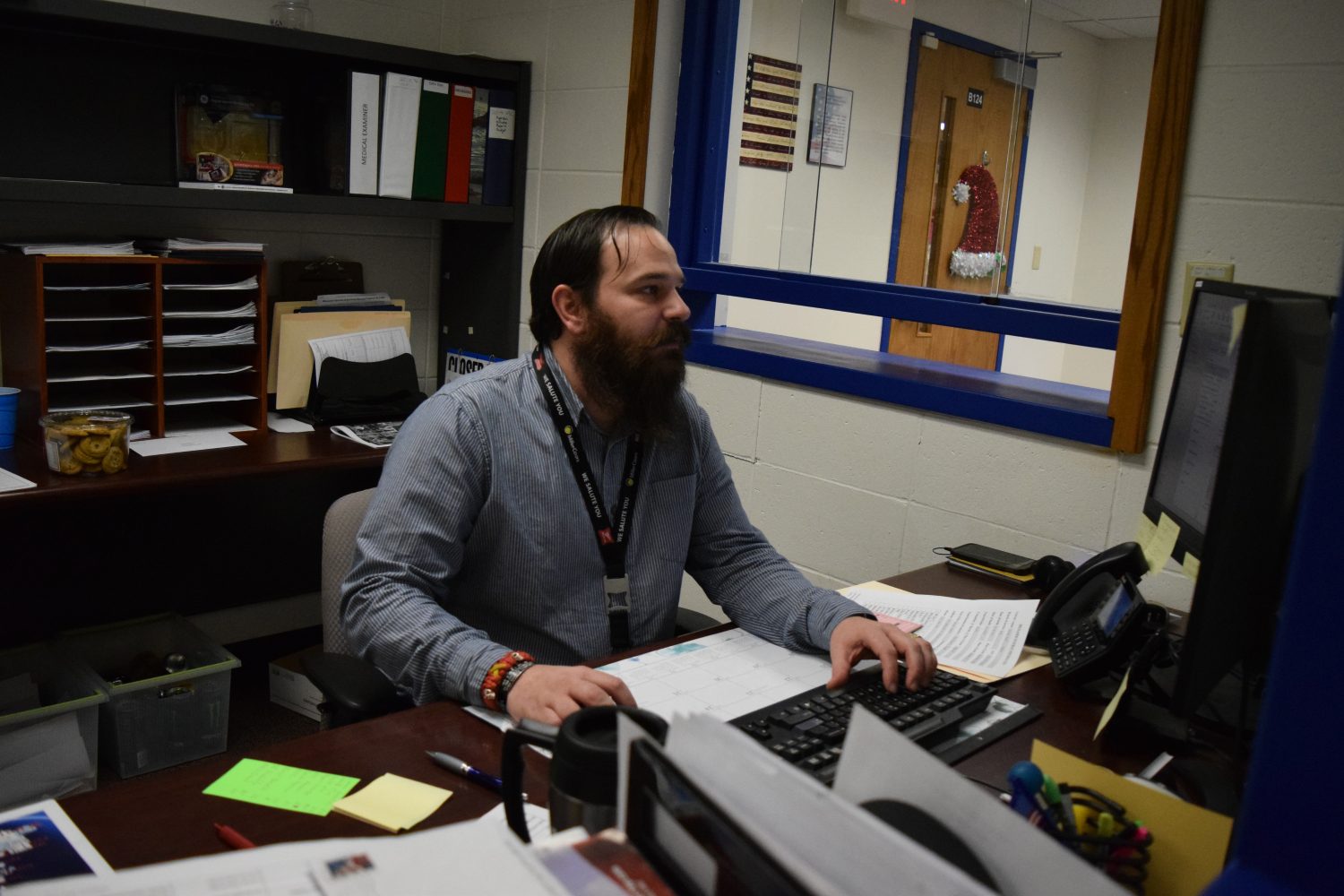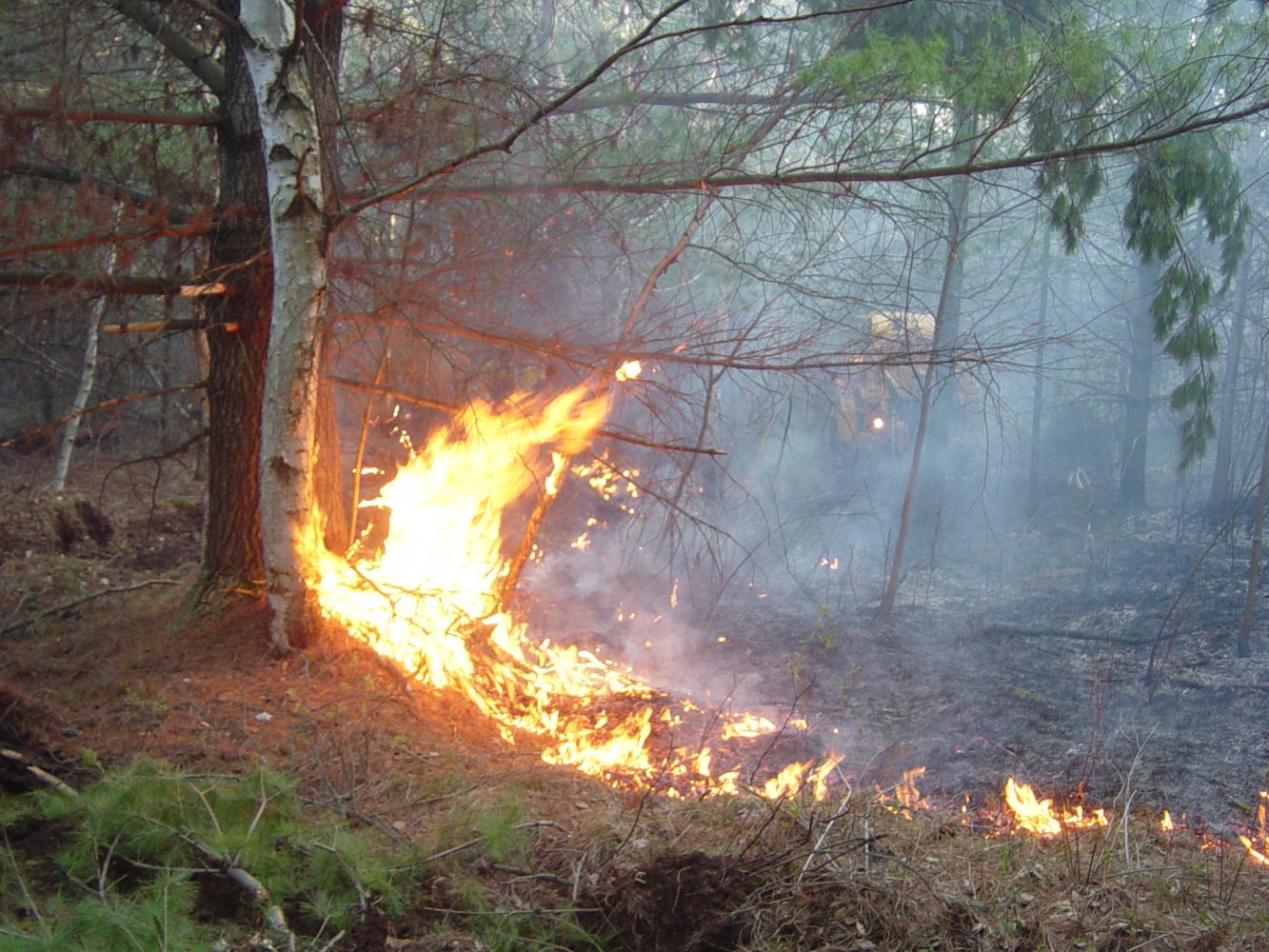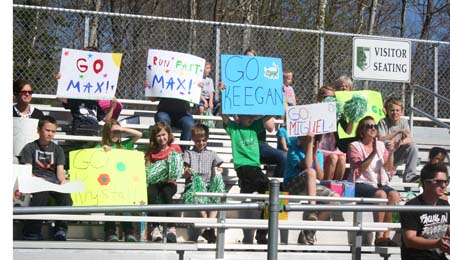Veteran helping veterans

Combat vet Jason Dailey finds his calling as the new assistant veterans service officer

Jason Dailey, assistant veterans service officer, stands next to a certificate of recognition for his platoon in Qalat, Afghanistan, with the flag that flew over his base.
By Jared Raney
Reporter
Ask any veteran and they’ll tell you: being in combat is like no other experience. It’s something the rest of us can’t even fathom.
So you can imagine how frustrating it must be, as a veteran, to walk into an office designed to help you, only to deal with someone who has no real idea what you’ve been through.
That has been the case for Oneida County vets in recent memory.
Fortunately, veterans today, when they walk into Oneida County’s Veterans Service Office, see a new face—one that has shared those experiences only a combat veteran can relate to.
 Jason Dailey, a veteran of the 951st Engineer Company of the Wisconsin Army National Guard in Rhinelander, was deployed to Afghanistan through 2008 and 2009. It was the same unit of fellow Rhinelander soldier Ryan Adams before he was killed in action Oct. 2, 2009.
Jason Dailey, a veteran of the 951st Engineer Company of the Wisconsin Army National Guard in Rhinelander, was deployed to Afghanistan through 2008 and 2009. It was the same unit of fellow Rhinelander soldier Ryan Adams before he was killed in action Oct. 2, 2009.
“Losing somebody is extremely hard,” Dailey said. “I’ve dealt with that heavy loss of losing someone in combat, so when people come in—Vietnam, Iraq, it doesn’t matter—if they’ve done that, I can relate to them… only combat veterans who have dealt with that really understand it.”
Dailey began working in the Office part-time last June, and was only officially promoted to a full-time assistant veterans service officer on Nov. 16. The hire was also part of a bigger change within the office, as from now on that position can only be filled by a veteran.
“Veterans loved the fact that he was a veteran. It made a difference to probably every single veteran that walked in the office,” said Tammy Walters, Oneida County veterans service officer. “That’s when I decided I needed to try and get that position, permanently, even long after I’m gone, I needed that position to be identified as a veteran-only position.”
Before enlisting, Dailey grew up in Rhinelander, gaining two technical degrees—a two-year in automotive technology and a one-year for welding—from Nicolet College. After serving, Dailey said he had a difficult time readjusting to civilian life.
“I’ve dealt with what it’s like to be separated from your family to go to a war zone, to wake up in the morning, getting ready for mission, and you don’t know if you’re going to see your family again, you don’t know if it’s going to be your last day,” Dailey said. “It’s hard to explain. I mean, it’s a mindset that, unless you’ve done it, you will never have it. And you really can’t explain it.
“When I first got back I had a hard time transitioning back into civilian life, went through individual therapy and group therapy, I was married, got divorced; a lot of the, I guess what would be the ‘typical’ veteran issues,” Dailey said.
Having been through the disability and healthcare portions of the Veteran Affairs system has been a huge asset to the Office, Walters and Dailey said.
Many of the issues the Service Office are simply veterans who are uncomfortable asking for help or don’t know what they’re looking for. Talking to a veteran helps ease them into the process.
“When they come in and they’re ticked off, frustrated, irritated with the run-around that they’re getting… actually going through it and learning from experience, it changes the whole aspect, that I’m able to help them,” Dailey said. “Yes, this process takes a long time; I know, I’ve dealt with it, I’ve dealt with the frustration. And it’s just a reassurance to them.”
It’s become a dream job for Dailey, who for the first time in his life has a job he doesn’t dread getting up for, and one that he actually gets excited about.
“What I care about is someone who’s going to be dedicated to veterans and someone who’s going to be passionate about the job. You can really teach anybody anything; you can teach them administrative work, you can teach them paperwork and forms,” Walters said. “But you can’t teach someone to care.”
In the Guard, Dailey was on a ‘route clearance’ team, which meant he was responsible for finding roadside bombs and blowing them up safely.
“I have a sense of purpose again. I may not be saving lives in stopping people from getting blown up, but I’m helping to improve lives,” Dailey said.
Leave a reply
You must be logged in to post a comment.





